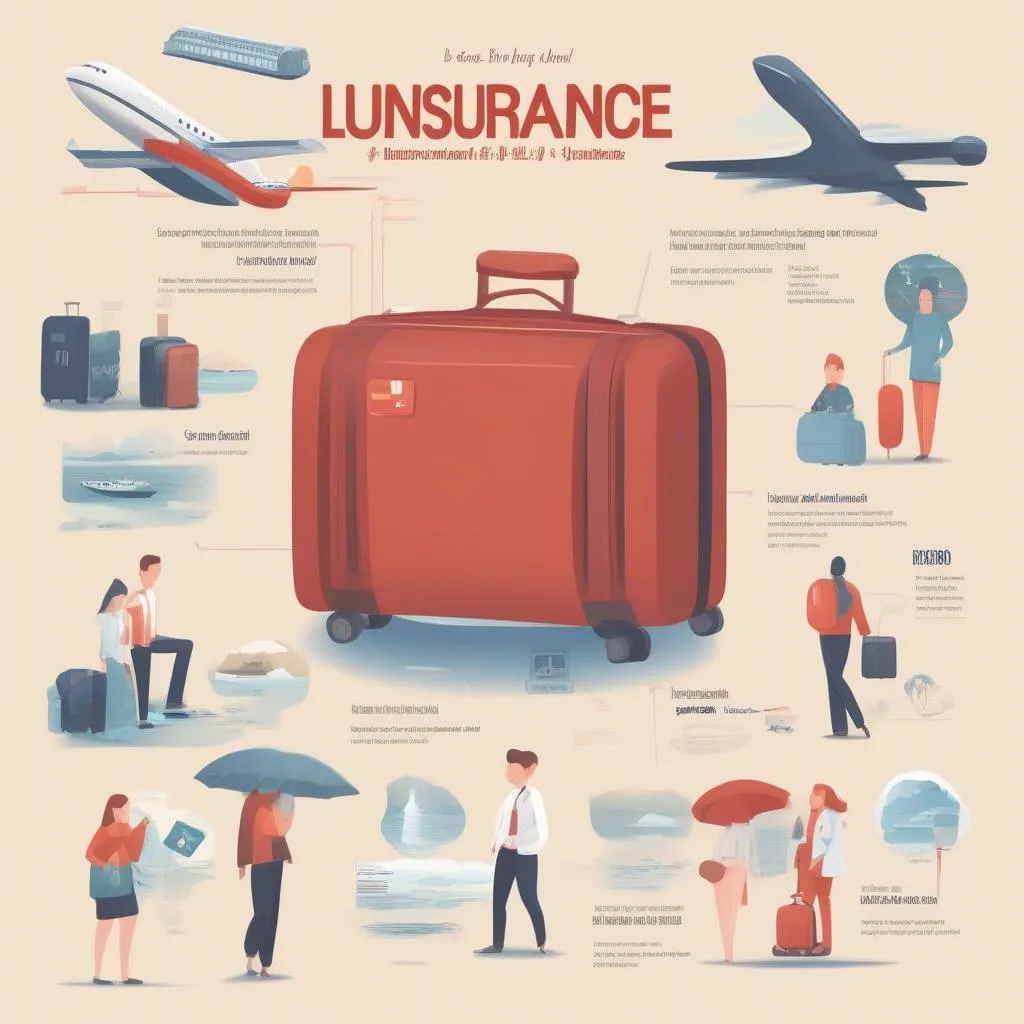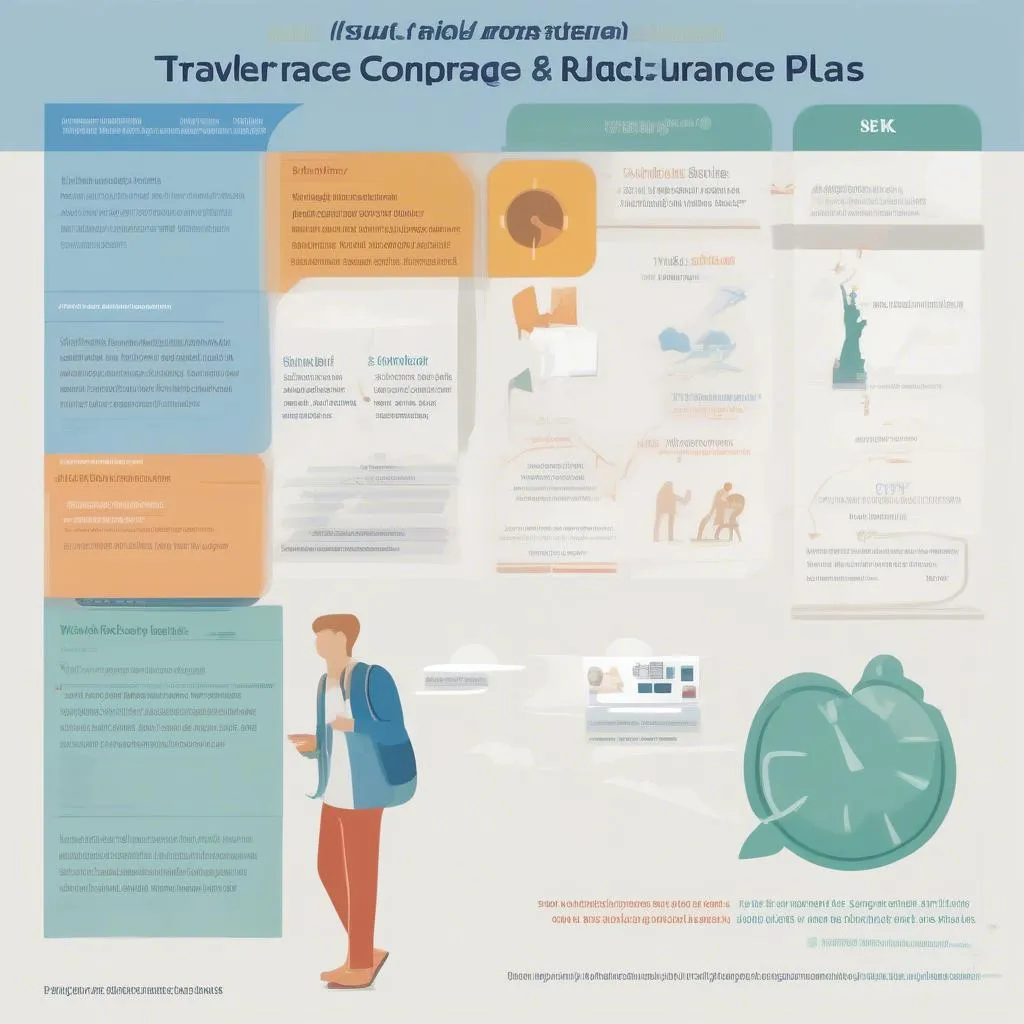Remember that time you planned the perfect trip to Bali? Picture yourself, finally relaxing on the beach after months of planning, sipping on a coconut under the warm Indonesian sun. But then, disaster strikes! Your luggage is lost, containing all your essentials and valuable belongings. This is where travel insurance comes in, acting as your safety net in unexpected situations.
Choosing the right travel insurance can be overwhelming. With so many options available, how do you know which one suits your needs? This guide will walk you through the essentials of travel insurance, helping you determine which policy will give you peace of mind on your next adventure.
Understanding Travel Insurance
Travel insurance is a safety net that protects you from unforeseen events that could disrupt your trip or even result in financial losses. It covers a range of situations, including:
- Medical Emergencies: Unexpected illness or injuries abroad can lead to hefty medical bills.
- Trip Cancellations or Interruptions: Life throws curveballs. Be it a sudden illness, a family emergency, or unforeseen weather conditions, travel insurance can reimburse you for non-refundable trip costs.
- Lost or Stolen Belongings: Luggage getting lost or stolen is a traveler’s nightmare. Travel insurance helps you recover the cost of your belongings.
- Travel Delays: From flight cancellations to missed connections, travel insurance can cover expenses incurred due to delays.
 Travel Insurance Benefits
Travel Insurance Benefits
Types of Travel Insurance
Navigating the world of travel insurance can feel like learning a new language. Let’s break down the common types of travel insurance policies available:
1. Single Trip Insurance
As the name suggests, single trip insurance covers a single trip, from the moment you leave home until you return. It’s ideal for those who travel occasionally and want coverage for a specific period.
2. Annual Multi-Trip Insurance
Frequent flyers, rejoice! This type of insurance provides coverage for multiple trips taken within a year, making it an economical choice for those bitten by the travel bug.
3. Backpacker Insurance
Designed for adventurous souls on long-term trips, backpacker insurance offers extended coverage for activities like trekking, adventure sports, and extended stays in various countries.
4. Specialized Insurance
Catering to specific needs, specialized insurance policies include coverage for cruises, winter sports, pre-existing medical conditions, and more.
Factors to Consider When Choosing Travel Insurance
Choosing the right travel insurance is like picking the perfect travel companion – it needs to meet your specific needs. Here are key factors to consider:
- Destination: Some destinations pose higher risks than others. Consider factors like the prevalence of certain diseases, political stability, and the availability of quality healthcare.
- Trip Duration: A weekend getaway will require different coverage compared to a month-long backpacking adventure.
- Activities Planned: Enthusiastic about scuba diving in the Great Barrier Reef or trekking the Himalayas? Make sure your insurance covers adventure activities.
- Budget: Determine how much you’re willing to spend on insurance while ensuring it aligns with your coverage needs.
 Choosing the Right Travel Insurance Plan
Choosing the Right Travel Insurance Plan
Travel Insurance Costs
Just like the cost of your favorite bowl of Pho varies from Hanoi to Ho Chi Minh City, the price of travel insurance can differ based on factors like:
- Coverage Limits: Higher coverage limits naturally come with higher premiums.
- Deductibles: Opting for a higher deductible can lower your premium but will require you to pay more out-of-pocket in case of a claim.
- Age and Health: Travelers in good health typically pay lower premiums compared to those with pre-existing medical conditions.
Tips for Buying Travel Insurance
Ready to secure your travel peace of mind? Here are some handy tips:
- Read the Fine Print: Don’t let insurance jargon intimidate you. Take your time to understand the policy’s terms and conditions, including what’s covered, what’s excluded, and the claims process.
- Buy Early: Purchasing insurance well in advance can often fetch you better rates and ensure you’re covered for unforeseen events that might occur before your trip.
- Compare Quotes: Just as you’d compare the prices of souvenirs at Ben Thanh Market, take the time to compare quotes from different insurance providers to find the best deal for your needs.
 Travel Insurance Comparison Website
Travel Insurance Comparison Website
FAQs about Travel Insurance
Q: Is travel insurance really necessary?
A: While not mandatory for all destinations, travel insurance provides financial protection and peace of mind, especially when faced with unexpected situations. Imagine facing a medical emergency abroad without insurance – the financial burden could put a serious damper on your trip.
Q: Can I buy travel insurance after booking my trip?
A: While it’s generally recommended to buy insurance as soon as you book your trip, some providers offer coverage for trips purchased within a specific timeframe. However, the earlier, the better!
Q: Does travel insurance cover pre-existing medical conditions?
A: Some policies offer coverage for pre-existing conditions, while others might have exclusions. It’s crucial to disclose any medical conditions when purchasing insurance to ensure you have the appropriate coverage.
Embrace Your Wanderlust with Confidence
Remember, traveling is about embracing new experiences and creating unforgettable memories. Choosing the right travel insurance allows you to do so with confidence, knowing that you’re protected from the unexpected. So, go ahead, book that dream trip to Halong Bay, lose yourself in the ancient temples of Angkor Wat, or savor the flavors of Vietnamese street food, all while enjoying the peace of mind that travel insurance provides.
For more travel tips and resources, visit TRAVELCAR.edu.vn.


